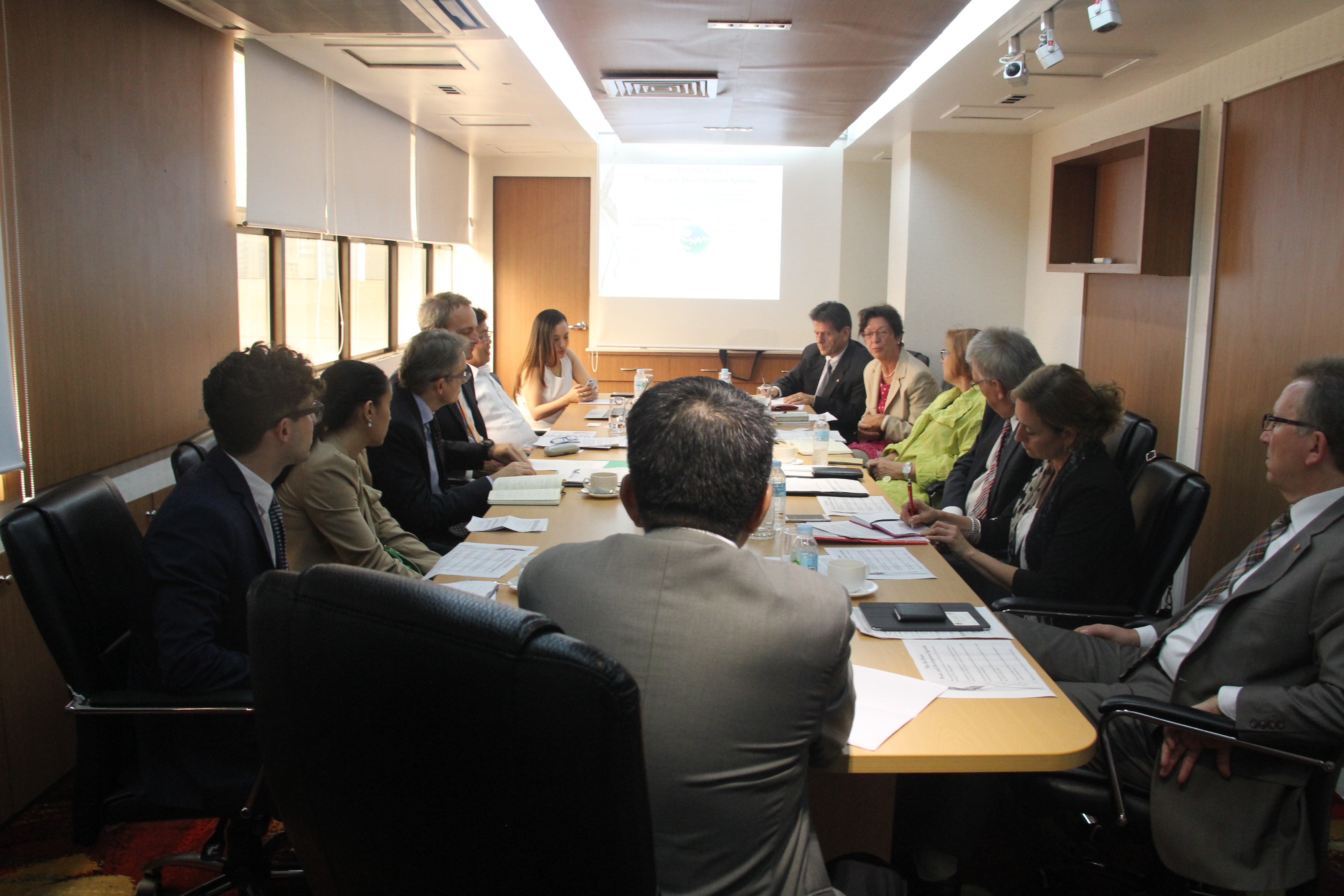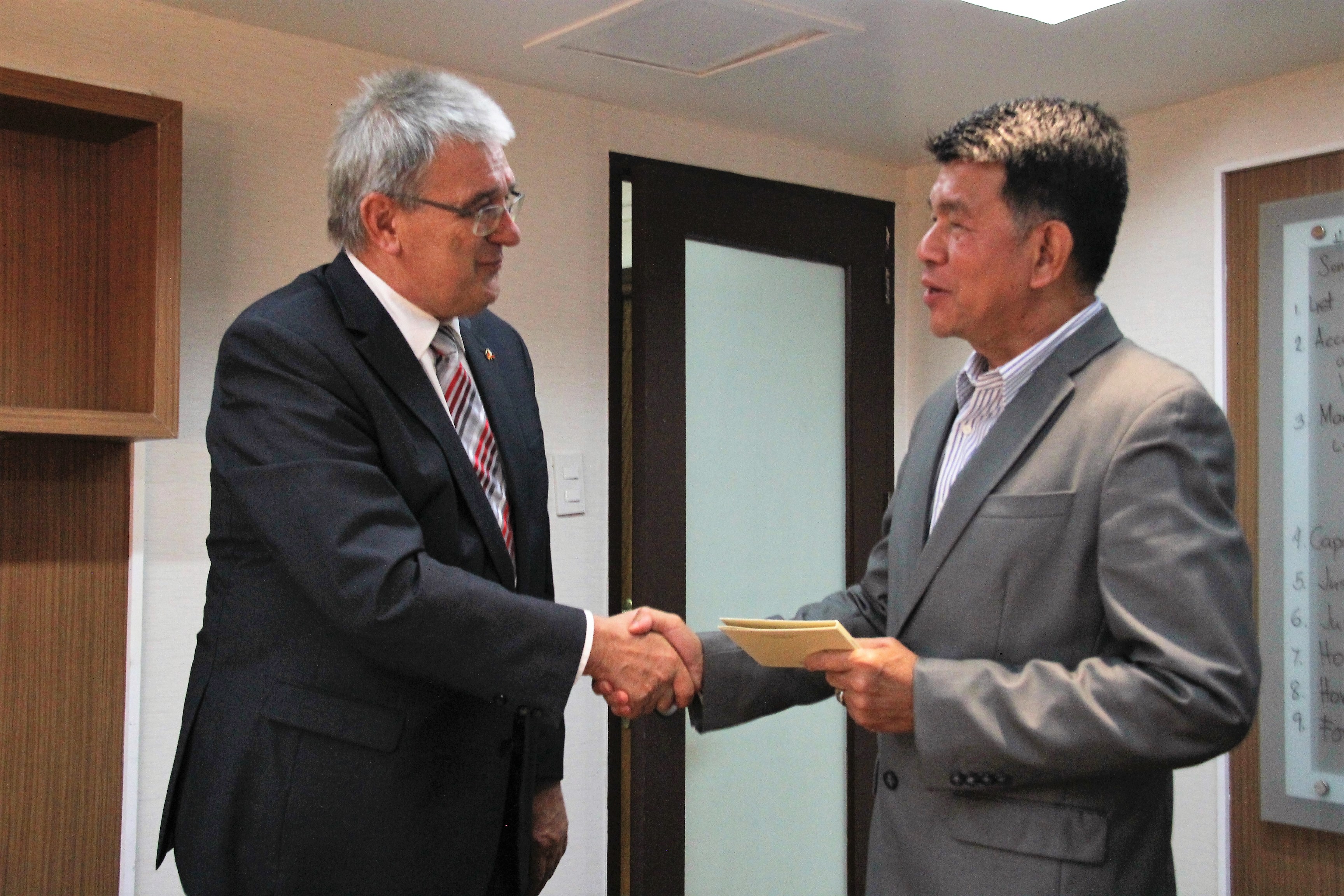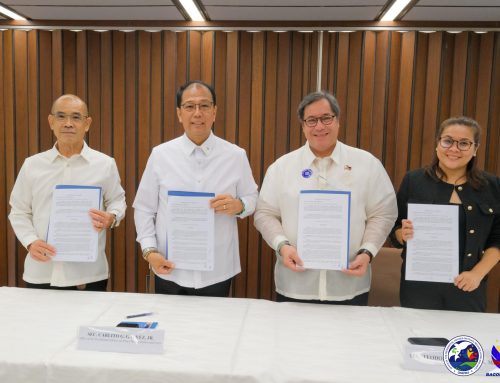PASIG CITY – Members of the Bundestag, Germany’s Lower House of Parliament, paid the Office of the Presidential Adviser on the Peace Process (OPAPP) a courtesy call expressing their strong support to the peace and development initiatives being undertaken by the administration of President Rodrigo Roa Duterte.
“We wish you all the success, because it could be a very good time, not just for the Philippines, but for the reason to sit together; and this can be a positive sign that could help end conflict,” said German parliamentarian Dr. Thomas Gambke during the meeting, emphasizing their support for the Philippine government’s transparent and inclusive approach on the peace process.

Gambke, who is also seating as Chairman of the Parliamentary Friendship Group for Relations with the Association of Southeast Asian Nation (ASEAN) states, was joined by other German lawmakers Petra Ernstberger; Caren Lay; Elvira Drobinski-Weiss; Erwin Rüddel; Gordon Kricke; and Michael Hasper.
They were received by OPAPP Undersecretary for Peace Accords Nabil A. Tan who discussed with them the Duterte administration’s Peace and Development Roadmap, focusing on plans to implement massive socio-economic interventions and the continued and full implementation of already signed peace agreements with various rebel groups.
“The President has expressed strong will to honor peace agreements and reduce level of violence so that the poverty-alleviation and development programs can be implemented while talks are there,” Tan explained.

While the OPAPP executive expressed high optimism for positive results within the year on the negotiations with the communist group, he also told the German parliamentarians that there is a need to manage expectations. “[P]eace process is not a destination as to when we can conclude, but it is a journey.”
OPAPP Secretary Jesus G. Dureza was in Oslo, Norway for another round of formal talks with the Communist Party of the Philippines/New People’s Army/National Democratic Front (CPP/NPA/NDF).
Scheduled on 6-10 October, part of the agenda of the second round of talks in Oslo involved discussions on: the Comprehensive Agreement on Respect for Human Rights and International Humanitarian Law (CARHRIHL); the Comprehensive Agreement on Socio-Economic Reforms (CASER); the Comprehensive Agreement on Political and Constitutional Reforms (CAPCR); and the Comprehensive Agreement on the End of Hostilities and Disposition of Forces (EoH/DoF).
Aside from the CPP/NPA/NDF, the Philippine government also has existing agreements with the Moro Islamic Liberation Front (MILF); the Moro National Liberation Front (MNLF); the Cordillera People’s Liberation Army (CPLA); and the Rebolusyonaryong Partido ng Manggagawa-Pilipinas/Revolutionary Proletarian Army (RPA)/Alex Boncayao Brigade (RPM-P/RPA/ABB).
The visit of the delegation is expected to further boost the already excellent relations between the Philippines and Germany, especially in supporting the government’s peace and development efforts. Germany is one of the four largest bilateral donors to the Philippines alongside Japan, United States of America, Australia, and Canada.
The German Federal Government’s current development initiatives in the country include poverty reduction and conflict transformation efforts in Mindanao. ###











